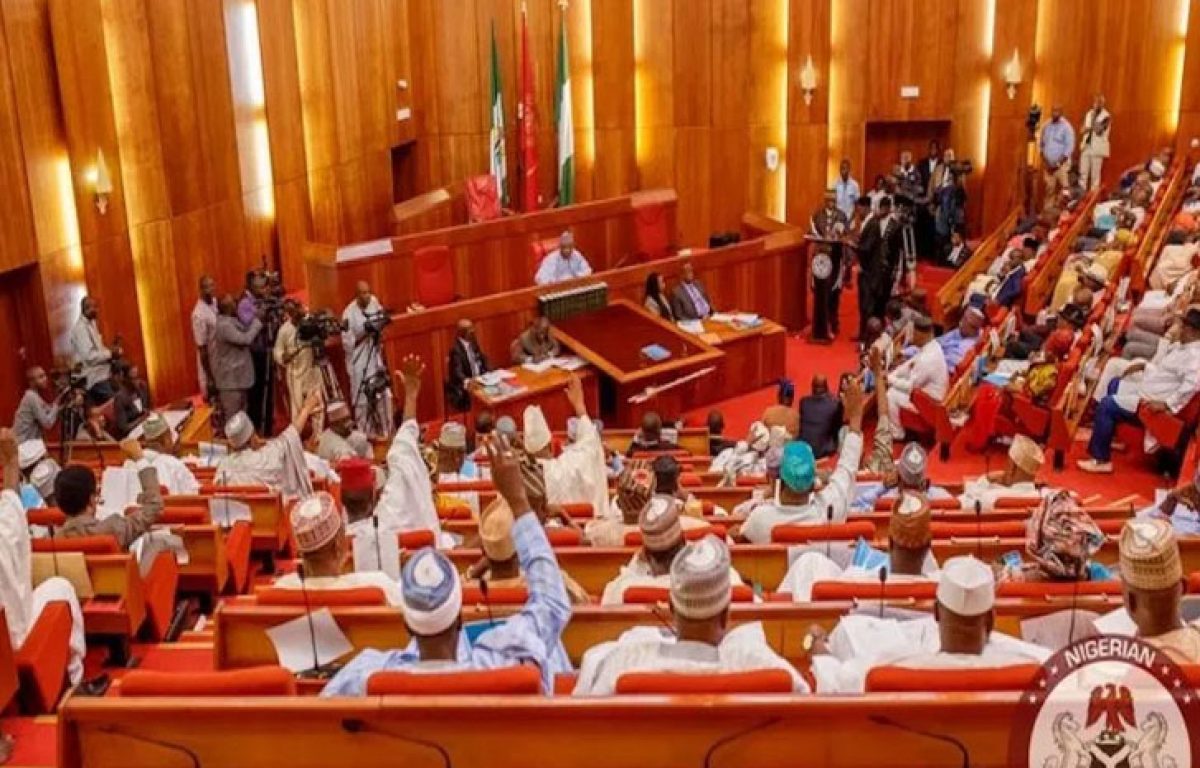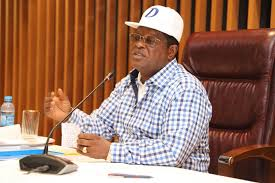Business
BPE Decries Non-dredging of Calabar Channel
By Joseph INOKOTONG
The Acting Director General of the Bureau of Public Enterprises (BPE), Dr. Vincent Onome Akpotaire has decried the non-dredging of the Calabar Channel which has impeded vessels coming into the Calabar Port to the detriment of the terminal operators and other users of the Port.
Speaking after the Post Privatisation Monitoring of Terminal Operators at the port recenrlt, the Acting Director- General who was represented by the Director, Post Privatisation Monitoring in the BPE, Mr. Joseph Chigbo Anichebe who led a BPE team to the Port, said the Bureau would immediately come up with a report on its assessment of the Port and present to the Federal Government for quick intervention for the dredging which commenced some time ago but suddenly stopped.
He said that though the Bureau was not a party to the contract for the dredging of the Calabar Channel, “BPE will step in to ensure that the Federal Government dredges the Port because it is an agreement signed with the Terminal Operators during the concessioning of the Terminals”.
The Ag. DG said that during the two-day monitoring at the Port, all the Terminal Operators complained that the non-dredging of the Channel had led to a lull in their operations leading to a huge loss of revenue to the Federal Government, a situation, he said ought to be addressed urgently to shore up Government’s dwindling revenue.
According to him, “Calabar Port is not what we were expecting. We expected to see here what is happening in Lagos and Port –Harcourt Ports where activities are booming but unfortunately, the Calabar Port has gone back to pre-2006 levels. We have interacted with the Port operators who have told us why the Port is not performing as expected and have given the Bureau an avalanche of reasons why the Port is not performing. And the major challenge they say is the non-dredging of the Calabar Channel.
“No ocean going vessel can come into the Channel. We were expecting the draught to be deepened but as it is now, no big or container laden vessels can come into the Port. When we go back after the interaction with the Terminal Operators, we will do a report to the BPE management and the National Council on Privatisation (NCP), chaired by the Vice-President, highlighting the problems we saw on ground and it is our belief that very soon things will change based on our recommendations”
A statement signed by Mr. Alex E. Okoh Head, Public Communications of the BPE said he stated that after the interaction with the Terminal Operators, the key thing that played out was the non-dredging of the Calabar Channel. “You can’t ask a ship to come to Calabar Port and dock because the depth is so low. And that is the critical thing we expect the Federal Government to do. As soon as the Channel is dredged, Nigeria can apart from imports, also export as there are many things to export but if the ships can’t come in you can’t export. You can’t take smaller ships to export goods to Europe”.
The Acting Director General maintained that the Calabar Port is very central to the North-East, North-Central, South-East and South-South regions of the country which it can control the economies in these regions.”Nnewi for instance imports heavy duty equipment. In Onitsha, they import all kinds of goods. Aba exports and imports a lot of products and Calabar Port should be the hub but currently, it is not. People will transport their goods to Lagos to export while others would import through Lagos Port and haul them by trucks and the roads are not good. So why not use the Calabar to ease their sufferings”.
The Calabar Port was concessioned to Intels, Ecomarine and Shoreline Logistics in 2006. Under the concession agreement, the Federal Government was contractually obligated to dredge the Calabar Channel but it never did until in 2013 when the Nigerian Ports Authority (NPA) appointed a Channel Manager- Calabar Channel Management (CCM) in 2013. CCM mobilised and started dredging in 2014 but suddenly stopped.
Due to the non-dredging of the Channel, many stakeholders have been making a case for it, the recent being the Manufacturers Association of Nigeria (MAN) which recently met with the Cross River State Governor, Ben Ayade to intervene to make the Port work.
Business
Senate Committee Commends Tinubu on Launch of National Halal Economy Strategy to Tap $7.7trn Global Market*

The Senate Committee on Finance has commended President Bola Ahmed Tinubu for launching Nigeria’s National Halal Economy Strategy, describing it as a bold and strategic move to position the country within the lucrative global halal market, estimated at $7.7 trillion.
In a statement signed by its Chairman, the committee praised the initiative as timely and aligned with international best practices. Several countries—including the United Kingdom, Canada, Australia, Malaysia, Indonesia, Saudi Arabia, the United Arab Emirates, Turkey, Brazil, Thailand, and Singapore—have successfully used halal frameworks to boost manufacturing, agricultural exports, financial markets, and foreign investment.
The committee highlighted Nigeria’s strong advantages for success in this space, including its vast agricultural resources, large domestic market, youthful population, growing manufacturing sector, and expanding services industry.
It noted that the strategy fits seamlessly into the Tinubu administration’s broader economic reforms, such as boosting non-oil revenue, diversifying exports, creating jobs, supporting small and medium enterprises (SMEs), and increasing foreign exchange earnings.
President Tinubu, represented by Vice President Kashim Shettima, officially unveiled the strategy on Thursday, February 6, 2026, at the Presidential Villa in Abuja.
The framework, developed in collaboration with Saudi Arabia’s Halal Products Development Company (HPDC) following a bilateral agreement signed in February 2025 at the Makkah Halal Forum, aims to enhance quality standards, certification processes, and competitiveness across sectors like food, pharmaceuticals, cosmetics, tourism, and ethical finance.
The committee described the strategy as inclusive, market-driven, and globally oriented, while fully respecting Nigeria’s diverse and pluralistic society.
It is projected to contribute significantly to the economy, with estimates suggesting it could add around $1.5 billion to Nigeria’s GDP by 2027 and unlock billions more in domestic value over the coming decade through expanded exports and investment.
The Senate Committee on Finance pledged its full legislative support, oversight, and cooperation to ensure smooth implementation, regulatory clarity, and long-term fiscal sustainability in the national interest.
“This decisive step reinforces Nigeria’s readiness to adopt proven international models, unlock new economic frontiers, and establish itself as a competitive player in the evolving global economy,” the statement concluded.
Business
Ex-Naval Chief Named in ₦100m Property Transaction Dispute
A property transaction dispute has emerged involving Zoe New Dawn Nigeria Limited and a former Chief of Naval Staff, following claims by the company’s chairman, Engr. Dr. Stephen Achema Akpa, that a ₦100 million payment made for land was not followed by a transfer of ownership.

According to Akpa, the payment was made in connection with a land transaction reportedly facilitated by the former naval chief. He alleged that despite documented payments, the land in question was neither transferred to the company nor was the money refunded.
Akpa said Zoe New Dawn Nigeria Limited possesses transaction records and related documents which, he claims, support its position in the dispute. He added that the company has initiated steps to seek redress through appropriate legal channels.
The matter has drawn attention due to the profile of the parties involved, particularly against the backdrop of recurring disputes linked to land ownership and property transactions in Nigeria’s real estate sector.
Industry observers note that unresolved land transactions remain a common source of litigation, often arising from disagreements over title documentation, intermediaries, and contractual obligations.
Zoe New Dawn Nigeria Limited stated that it intends to pursue the matter through lawful means to determine liability and recover any funds deemed outstanding.
As of press time, no official response had been issued by the former Chief of Naval Staff regarding the allegations. The dispute has not yet been confirmed as the subject of any court proceedings.
Business
Umahi Inspects Lekki Corridor’s 7th Axial Road Project, Expresses Confidence in CHEC

Minister of Works Senator Dave Umahi over the weekend inspected the progress of the 7th Axial Road project in the Lekki Corridor of Lagos.
The project, located behind the Dangote Refinery, is a crucial cargo handling route for the Lekki Deepwater Port and connects the Lekki Corridor with the Sagamu route.
The Minister expressed confidence in China Harbour Engineering Company Limited (CHEC), the project’s contractor, citing its successful delivery of the Lekki Deepwater Port and high-quality progress on the Makurdi-Enugu road reconstruction and expansion project. Umahi instructed that the roadbed filling work for Project LOT1 be completed by the end of April and directed the project team to accelerate resource input and tangible works to meet the deadline.
The 7th Axial Highway is expected to synergize with key infrastructure projects like the Coastal Road, Dangote Road, and Lekki Port, creating a comprehensive transportation hub model and boosting Nigeria’s port economy and industrial corridor. Umahi emphasized the need for environmental protection agencies to ensure efficient construction and steady progress while maintaining ecological safety.
A representative of CHEC who spoke during the inspection stated that the company would maintain a high level of resource input, implement the Minister’s directives, and coordinate safety, quality, and environmental protection to ensure the project’s timely and high-quality completion in other to unluck its port relief and regional economic benefits.
-

 Uncategorized5 years ago
Uncategorized5 years agoFG, states urged to harness flooding for ranching, others with technology – Agbaje
-

 Headlines10 years ago
Headlines10 years agoBreaking: EFCC seals Borno House of Assembly, as Hon members take to their heels
-

 News12 years ago
News12 years agoNigeria Security Operatives Stage Manhunt For Homosexual Perpetrator
-

 News9 years ago
News9 years agoHow 21-year-old Girl fled community over accusation of lesbianism
-

 News10 years ago
News10 years agoYobe Gov Moves Against Deputy
-

 Opinion7 years ago
Opinion7 years ago7 signs she has friend zoned you
-
Technology4 years ago
Online job placement company headhunts women
-

 Headlines10 years ago
Headlines10 years agoBorno Dep Gov Abducts Another Church Leader





